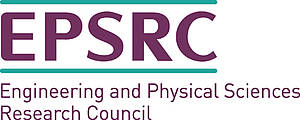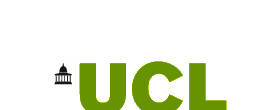The 20th CREST Open Workshop
The Oracle Problem for Automated Software Testing
Date: 21 - 22 May 2012
Venue: Engineering Front Executive Suite, Roberts Building, UCL
Overview:
Testing involves examining the behaviour of a system in order to discover potential faults. The problem of determining the desired correct behaviour for a given input is called the Oracle Problem. Since manual testing is expensive and time consuming there has been a great deal of work on automation and part automation of Software Testing. However, the problem of automating the Oracle remains a bottleneck that inhibits progress in increased automation for test effectiveness and efficiency. There are several fruitful avenues through which this problem can be addressed including (but not limited to) specification (creation and mining), model and contract based development and testing, metamorphic testing, search based testing and human oracle cost reduction. This workshop will bring together researchers and practitioners working on these approaches to attacking the Oracle Problem to share ideas, recent result and to discuss and develop the research agenda for future work on controlling, managing and automating the Software Testing Oracle.
This workshop is held jointly by the CREST Open Workshop (COWs) programme and the EPSRC RE-COST project (RECOST), a partnership between UCL and the University of Sheffield.
Programme: (Downloadable programme in PDF)
+++++++++21st May 2012 – DAY 1+++++++++
09:30 Arrival, Coffee and Pastries
10:15 Welcome and Introductions (Video, Introduction)
Mark Harman, CREST Centre, SSE Group, Department of Computer Science, UCL, UK
11:00 Overview of Oracles in Testing (Video, Slides)
Shin Yoo, CREST Centre, SSE Group, Department of Computer Science, UCL, UK and Muzammil Shahbaz, University of Sheffield, UK
11:30 Refreshments
12:00 Runtime monitoring and testing of cloud services (Video, Slides)
Wolfgang Grieskamp, Google Inc., USA
12:30 Supporting Test Oracle Construction (Video, Slides)
Matt Staats, Division of Web Science and Technology, KAIST, South Korea
13:00 Sandwich lunch at the venue
14:00 Testing is nothing but reckoning: An Empiricist Perspective on Testing
Neil Walkinshaw, University of Leicester, UK
14:30 Mining anomaly detectors (Video, Slides)
Paolo Tonella, Software Engineering (SE) Research Unit, Fondazione Bruno Kessler (FBK), Italy
15:00 Popular Delusions, Crowds, and the Coming Deluge: end of the Oracle? (Video, Slides)
Robert Binder, System Verification Associates LLC, USA
15:30 Refreshments
16:00 Automating Test Automation (Slides)
Saurabh Sinha, IBM Research, India
16:30 Oracles and testing at Microsoft
Wofram Schulte, Microsoft Research, USA
17:00 Wrap up and discussion
Mark Harman, CREST Centre, SSE Group, Department of Computer Science, UCL, UK
18:00 Close
18:15 Light Dinner at the Marlborough Arms
+++++++++22nd May 2012 – Day 2+++++++++
09:30 Arrival, Coffee and Pastries
10:00 Oracles in TTCN-3 and UTP (Video, Slides)
Ina Schieferdecker, Fraunhofer-Institut für Offene Kommunikationssysteme (FOKUS), Germany
10:30 When the earth is the oracle
Robert Nilsson, Google Inc., Switzerland
11:00 Metamorphic Testing (Video, Slides)
Tsong Chen, Centre for Computing and Engineering Software Systems, Swinburne University of Technology, Australia
11:30 Refreshments
12:00 Oracle Problem: An Industrial Perspective
Andrea Arcuri, Schlumberger and Simula Research Laboratory, Norway
12:30 Which Test Oracle Should I Use for Effective GUI Testing?
Atif Memon, Dept. of Computer Science, University of Maryland, USA
13:00 Sandwich lunch at the venue
14:00 Implicit oracles from software redundancy (Video)
Mauro Pezzè, University of Milano Bicocca, Italy and University of Lugano, Switzerland
14:30 Carving invariants (Video, Slides)
Andreas Zeller, Computer Science, Saarland University, Germany
15:00 Refreshments
15:30 Mining web pages for realistic test inputs to lower oracle cost (Video)
Phil McMinn, University of Sheffield, UK
16:00 Generating oracles with mutation testing and the crowd
Gordon Fraser, University of Sheffield, UK
16:30 Wrap up
17:30 Close
Photos:























This workshop is supported by the following sponsors:



Registered Attendees: THIS WORKSHOP IS FULL NOW AND REGISTRATION IS NOW CLOSED!
- César Andrés, Dep. Sistemas Informáticos y Computación Facultad de Informática, Universidad Complutense de Madrid, Spain
- Kelly Androutsopoulos, CREST Centre, SSE Group, Department of Computer Science, UCL, UK
- Andrea Arcuri, Schlumberger and Simula Research Laboratory, Norway
- Robert Binder, System Verification Associates LLC, USA
- Emil Börjesson, Chalmers University of Technology, Sweden
- Mustafa Bozkurt, CREST Centre, SSE Group, Department of Computer Science, UCL, UK
- Tsong Chen, Centre for Computing and Engineering Software Systems, Swinburne University of Technology, Australia
- David Clark, CREST Centre, SSE Group, Department of Computer Science, UCL, UK
- Sigrid Eldh, Ericsson AM & Karlstad University, Sweden
- Michael Felderer, Institute of Computer Science, University of Innsbruck, Austria
- Robert Feldt, Chalmers University of Technology, Sweden
- Gordon Fraser, University of Sheffield, UK
- Ahmad Nauman Ghazi, Software Engineering Research Lab (SERL), Blekinge Institute of Technology, Karlskrona, Sweden
- Wolfgang Grieskamp, Google Inc., USA
- Mark Harman, CREST Centre, SSE Group, Department of Computer Science, UCL, UK
- Robert M. Hierons, School of Information Systems, Computing, and Mathematics, Brunel University, UK
- Yue Jia, CREST Centre, SSE Group, Department of Computer Science, UCL, UK
- Jens Krinke, CREST Centre, SSE Group, Department of Computer Science, UCL, UK
- Kiran Lakhotia, CREST Centre, SSE Group, Department of Computer Science, UCL, UK
- Emmanuel Letier, SSE Group, Department of Computer Science, UCL
- Carolyn Mair, Southampton Solent University, UK
- Bogdan Marculescu, Software Engineering Research Lab (SERL), Blekinge Institute of Technology, Karlskrona, Sweden
- Rafael Martinez Torres, Dep. Sistemas Informáticos y Computación Facultad de Informática Universidad Complutense de Madrid, Spain
- Atif Memon, Dept. of Computer Science, University of Maryland, USA
- Mark Micallef, Department of Computer Science, University of Malta, Malta
- Phil McMinn, University of Sheffield, UK
- Matthew Moroz, CREST Centre, SSE Group, Department of Computer Science, UCL, UK
- Robert Nilsson, Google Inc., Switzerland
- Alberto Núñez, Dep. Sistemas Informáticos y Computación Facultad de Informática Universidad Complutense de Madrid, Spain
- Manuel Núñez, Dep. Sistemas Informáticos y Computación Facultad de Informática Universidad Complutense de Madrid, Spain
- Mike Papadakis, University of Luxembourg, Luxembourg
- Mauro Pezzè, University of Milano Bicocca, Italy and University of Lugano, Switzerland
- Wishnu Prasetya, Utrecht University, The Netherlands
- Jian Ren, CREST Centre, SSE Group, Department of Computer Science, UCL, UK
- Ina Schieferdecker, Fraunhofer-Institut für Offene Kommunikationssysteme (FOKUS), Germany
- Wofram Schulte, IBM Research, USA
- Ali Shahrokni, Chalmers University of Technology, Sweden
- Saurabh Sinha, IBM Research, India
- Matt Staats, Division of Web Science and Technology, KAIST, South Korea
- Michael Tautschnig, University of Oxford, UK
- Paolo Tonella, Software Engineering (SE) Research Unit, Fondazione Bruno Kessler (FBK), Italy
- Richard Torkar, Chalmers University of Technology, Sweden
- Muzammil Shahbaz, University of Sheffield, UK
- Mattia Vivanti, University of Lugano, Switzerland
- Neil Walkinshaw, University of Leicester, UK
- Shin Yoo, CREST Centre, SSE Group, Department of Computer Science, UCL, UK
- Andreas Zeller, Computer Science, Saarland University, Germany
